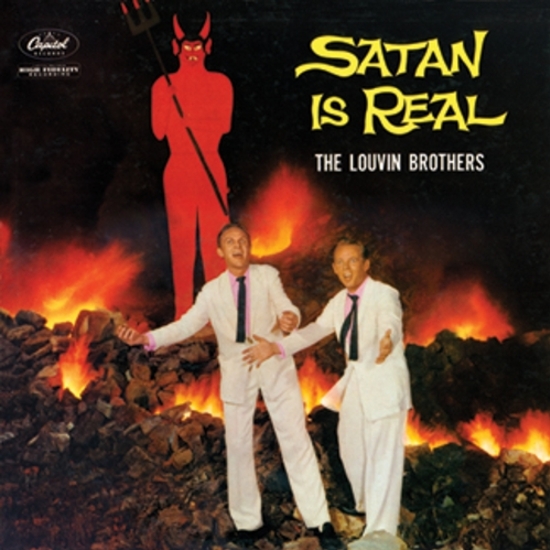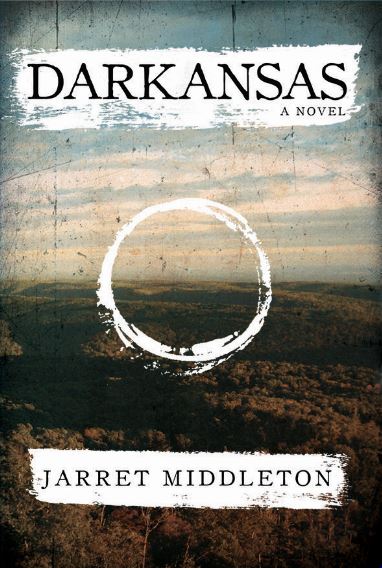Darkansas, the new novel by Jarret Middleton, has been getting a lot of hype. And deservedly so. It tells the story of Jordan, a country musician living in the shadow of his father, bluegrass legend Walker Bayne. A man who has made a lifetime of poor decisions, Jordan bounces between dive bars, accruing women and drinking himself to the brink of disaster. When he returns home to the Ozarks for his twin brother’s wedding, Jordan uncovers a dark vein in the Bayne family history: going back to the end of the Civil War, every generation of Bayne men have been twins―and one twin has always murdered their father. Praised by Donald Ray Pollock as “one of the best debuts of the year,” Middleton establishes himself as a novelist in good company with Brian Panowich and Smith Henderson, yet in a category all his own.
We met in a seedy bar along the Seattle waterfront whose clientele tends to run along the lines of dishonorably discharged merchant marines, those looking to stretch their five dollars until closing time, and those looking to take your five dollars right now.
Sean Beaudoin: So. Generational madness, patricide, murder, deviancy, subversion, the deep south, and rivers of booze. I take it life is good?
Jarret Middleton: Life is great! Current apocalypse-in-motion aside.
SB: What’s it like writing a novel set in the deep Ozarks while sitting in a porch in Seattle?
JM: Well as of today my truck is covered in ash and smoke from the wildfires has diffused the sky into a blood orange haze. I know I finished writing Darkansas some time ago now, but I feel as though we are increasingly entering the surreal, mythic world of the novel. Of course it’s how I have always seen and felt and experienced the world, but up until now I wasn’t sure how well it corresponded to objective reality. It was appropriate that the circular sigil on the hardcover jacket looked like the corona of the recent solar eclipse. The book came out right before the eclipse, so it felt right. I’m glad Twin Peaks just came back and blew everyone’s minds again, just as a reminder that there are larger forces at work. We may not be able to see them, but we can see their effects and it’s horrifying. As for the day-to-day of writing a novel so deeply rooted in a unique sense of place while not being in that place? Honestly, I just listened to bluegrass, drank whiskey, and picked my guitar while staring at the moon. That was enough to put me in the frame of mind of the Bayne clan, then I just took it from there.
SB: I see the term “Hillbilly Noir” tossed around quite a bit. How do you feel about that honorific?
JM: I interviewed Brian Panowich (Bull Mountain) a few years ago and he wore it as a badge of honor. He’s a bawdy super-friendly Georgian in a cowboy hat though, so it suits him. I guess it gets tossed around when people are talking about Donald Ray Pollock, Frank Bill, George Singleton, William Gay. That kind of thing. I get it, but that’s not where I’m at. I’m from Boston and call Seattle home. I eat salmon and drink Guinness in a scaly cap and sing Pogues songs. In a lot of ways it’s all the same thing, it doesn’t really matter. I never actually understood pigeon-holing writers based on where they’re from, as if it’s supposed to dictate their subject matter or the style of their prose. It’s the same as expecting race, gender, or class, or any other non-existent factor to recidivistically ground that writer’s work in something that people can identify with or easily relate to. That’s just market capitalism creating homogonous commodity forms for writers and their work and calling it difference. It’s all just more barriers that artists have to tear down. So, you know. Fuck that.
SB: You must have known people were going to compare Darkansas to Faulkner and O’Conner, which definitely lends it a literary cache, but I think it’s just as reminiscent of James Lee Burke and William Gay, not to mention Nick Cave and the bones of Johnny Cash. In other words, entertaining as hell.
JM: I’m humbled by any comparison to those giants, of course, and you’re right, it is as much in league with James Lee Burke, Smith Henderson, Wiley Cash, and so many more that are setting excellent dark or dramatic stories in the country. But for me, that is just where the story of Darkansas had to be told. In the Ozarks, in a cursed family of bluegrass musicians. My prose varies widely and if I’m not taking risks and challenging myself or asking possibly unanswerable or unknowable questions I get bored or worse, depressed, and don’t know what the hell I’m even doing anymore. So I try to stay out of the ditches to either side of the road and stay on the meandering path I am on, wherever it takes me. That’s why I’m not a ‘country noir’ writer. Or fine, I am a country noir writer, and a literary horror writer, and a surreal writer, and philosophical writer, and mystic writer. I’m whatever I choose to write about, because I’m a writer, and that’s what writers do.
The novel I’m writing now is about a young hockey player from New England who suffers a concussion from a brutal head hit and the post-concussion symptoms trigger a crisis that brings him face to face with existential despair. It’s pretty bleak, and it’s also the first fiction I’ve ever written that draws so closely from my own life. I’m also chipping away at a sprawling outline for a trilogy set on two fictional islands in the north Pacific where a savior falls from the sky into the ocean and it sets off an age-old prophecy that awakens the dead spirits across the islands. It’s called fiction. Like I said, labels are just market trash. They have nothing to do with beautiful naked eternal consciousness.
SB: Did you consider at all the pushback you might get for the scenes of violence and sex, or do you share my opinion that those are elemental aspects of the human condition, and books that try to avoid them as a matter of being slightly more anodyne (a fancy word for marketable) are doomed?
JM: I anticipated it but that anticipation sits in a gigantic pile of things that I don’t give a shit about. Characters are necessarily flawed, sometimes deeply so, in order to create drama, tension, conflict, and resolution. Again, it’s called fiction. Not everything has to relate the world as-is. People are so condition to representation, it’s sickening. Not all prose has to be a self-help redemption story. Characters can be sexist, racist, classist, brutish, piggish, rapists, murderers, suicidal, any number of things, but that doesn’t mean the author is any of those things. Anyone who knows me knows I am a dyed-in-the-wool feminist with revolutionary politics. I came up on Angela Davis, Huey Newton, Stokley Carmichael, Marcus Garvey, Emma Goldman, Eugene Debs, John Dewey, Franz Fanon, Rosa Luxemburg, Hannah Arendt, Theodor Adorno, Judith Butler, Gilles Deleuze. Not that it should matter. I mean, for fuck’s sake, we’re in a battle for our bodies, minds, and spirits here. We’re up against the forces of death and our only weapons are creating art and love, which are the same thing. I prefer to spend my time in the shadows with deeply flawed people who are hurting and who need attention, care, and help. We’re all trying to heal, and talking about healing or criticizing healing is not the same thing as disinfecting and bandaging a wound and nursing ourselves back to health. A lot of the commentary out there is just ineffectual and inessential. Help or get out of the way.
SB: Give me five unexpected songs that would make a killer alternate-soundtrack for Darkansas.
JM: I did a soundtrack for the book over at Largehearted Boy, which you can check out here and immediately listen to on their jukebox.
SB: Any list with both Lucero and The Louvin Brothers is pure gold. Speaking of which, how many “Devil Went Down To Georgia” jokes have you pretended to smile through during interviews?

JM: A pretty good amount but Peter Geye did me a huge favor by starting his blurb for the book by saying, “The devil didn’t go down to Georgia, he went to Arkansas.” Really nipped that one in the bud.
SB: How come all the best books are about how, deep down, we are monstrous animals who have zero control of our fates?
JM: Because the excesses of capitalism and the imperial hegemony of western civilization and the false thought project of humanism that divorced humans from nature with catastrophic, soul-crushing consequences is now coming to an end. The old methods of exploitation and domination are giving way. The resulting crisis is revealing our animal nature, our territorial tribalism, and fight for resources, sure, but that is just animal conditioning. Underneath that, I think we’re starting to remember how we have survived on this planet for so long. Thankfully, we’re discovering the old bones of the archaic wisdom embedded deep within the collective unconscious of human memory, locked away in our DNA, that we know we are stardust, that we are divine, that we are free entities of love, that we emerge from and return to eternity.
SB: The perfect segue for Speed Round:
Directing a low-budget Darkansas: Tarkovsky or Polanski? Tarkovsky is god. Though if he directed it, it would definitely be over-budget, delayed for eight-years, subject to government censorship, and a portion of the cast and crew would die from radiation poisoning.
GBH, JFA, DOA, MDC or MC5? All together? GREATEST. SHOW. OF. ALL. TIME.
The Hartford Whalers should be: Back in Hartford. . . .or in Seattle, and keep the name (sorry Carolina).
Tacos with anything other than meat, cilantro, chopped onion, and hot sauce are called: Hipster nonsense.
John Lee Hooker, Bobby Blue Bland, or Johnny Walker Blue? The King of the Boogie deserves all the Johnny Walker Blue.
Score: 5 out of a possible 5.



